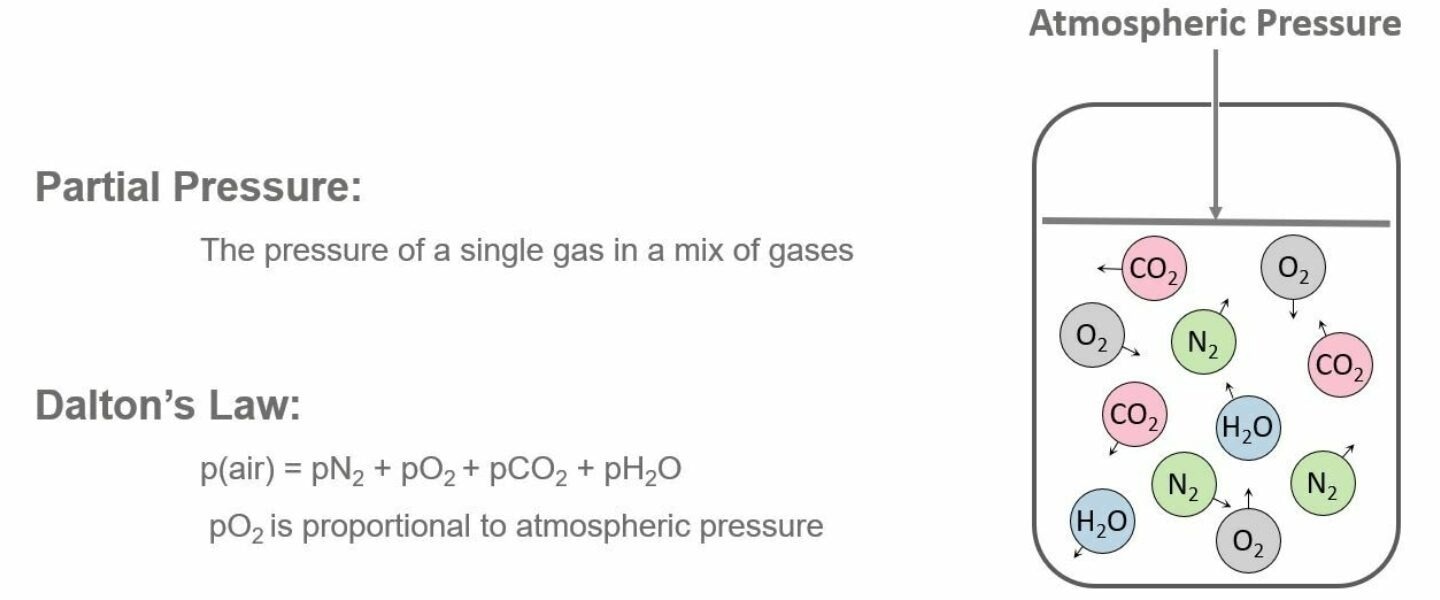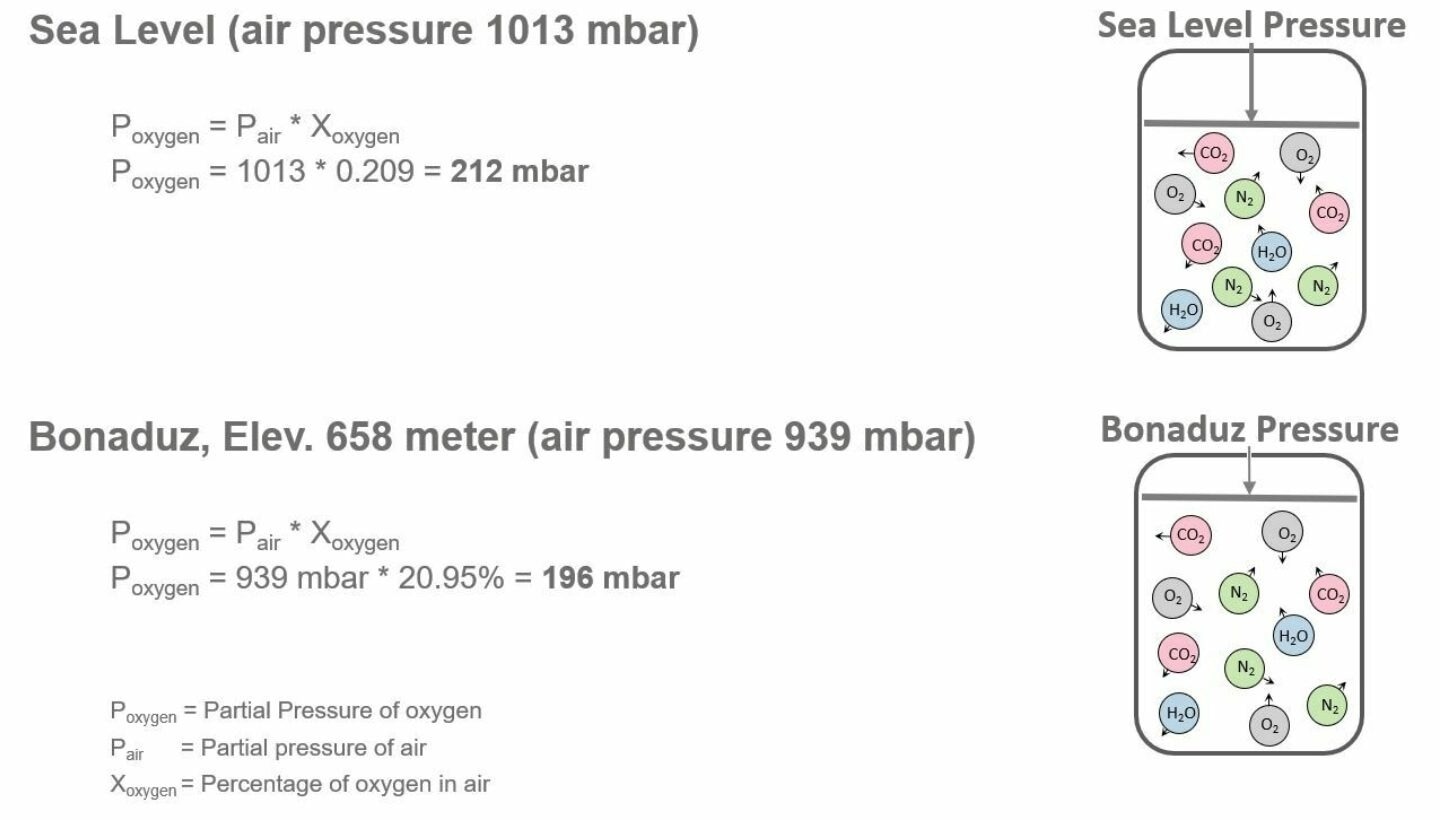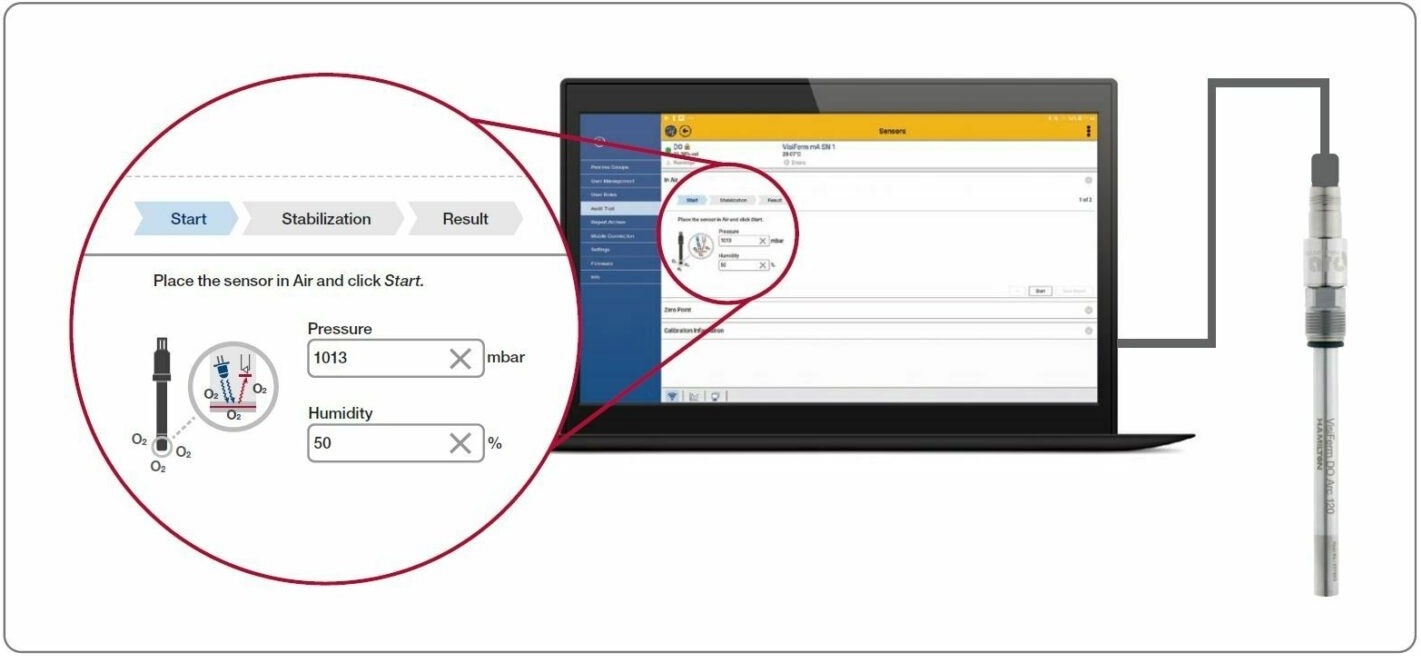Hamilton's dissolved oxygen and carbon dioxide sensors utilize measurement technology based on partial pressure. This article examines atmospheric pressure as a potential source of calibration error.
Why is Partial Pressure Important?
Gas molecules are in constant motion, exerting kinetic energy as they collide with each other or the container walls. Each gas type has its distinct kinetic energy.
Some gas molecules are more active than others, and their force is the partial pressure of that specific gas. For instance, in a gas mixture like air, you can calculate the atmospheric pressure by adding up the partial pressures of each gas, which Dalton's Law describes.

Image Credit: Hamilton Process Analytics
Consider the connection between atmospheric pressure and the partial pressure of oxygen (pO2). Elevation changes directly affect atmospheric pressure. At sea level, atmospheric pressure remains around 1013 millibar.
In Bonaduz, Switzerland, where Hamilton Process Analytics operates, the elevation is 658 meters, equivalent to 939 millibars. While the oxygen content in the air is consistently 20.95% in both locations, the measurement of oxygen in Bonaduz is lower due to the variance in partial pressure.

Image Credit: Hamilton Process Analytics
How Does This Relate to Calibration?
Because Hamilton cannot anticipate the atmospheric pressure at the sensor's usage location, Arc sensors come pre-configured for sea level conditions (1013 millibar). Before calibration, it is essential to input the current atmospheric pressure into the sensor using ArcAir to prevent potential errors.
For sensors with newer firmware like VisiFerm mA or CO2NTROL, atmospheric pressure is part of the calibration setup. In other cases, you can find this value in ArcAir under SETTINGS > MEASUREMENT SETTINGS.

Image Credit: Hamilton Process Analytics
Determining Atmospheric Pressure?
It is recommended to avoid relying on weather websites, as they normalize atmospheric pressure to sea level. Although this removes the error due to elevation, which helps understand weather, it can lead to inaccuracies in sensor calibration.
Hamilton suggests using a certified atmospheric pressure meter (e.g. Testo) to obtain the accurate value for calibration. In cases where a meter is unavailable, you can estimate atmospheric pressure based on the elevation at the sensor installation site.
Look for websites or charts that employ the barometric formula to model elevation and atmospheric pressure, such as Wikipedia.

This information has been sourced, reviewed and adapted from materials provided by Hamilton Process Analytics.
For more information on this source, please visit Hamilton Process Analytics.